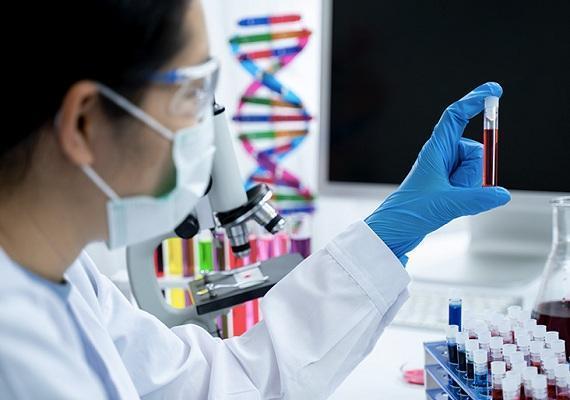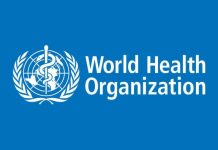The day was 5 September 2009, and the news slowly filtered in. First, it appeared to be just a rumour. Then the reality dawned. Gani Fawehinmi, the iconic human rights lawyer and seemingly indefatigable advocate for justice, was dead.
Cause of death? Cancer. On 8 December 2010, Clara Oshiomhole, the then wife of Governor Adams Oshiomhole of Edo State who had been his fervent supporter before and during his tenure as governor, died prematurely, few days to her daughter’s wedding.
The culprit? Cancer. Then on 13 April 2013, it was announced that Funmilayo Olayinka, deputy governor of Ekiti State, who before venturing into politics, was “a proven technocrat and seasoned professional banker”, had died in a United Kingdom hospital after several months of fighting to stay alive. Diagnosis? Cancer.
Indeed, time and space would be insufficient to provide a comprehensive list of other prominent Nigerians whose lives have been painfully truncated by the disease. Still, the likes of Admiral Augustus Aikhomu, one-time chief of general staff and vice president; Dr Olusola Saraki, second republic senate leader and strongman of Kwara politics; Maryam Babangida, former first lady and foremost pioneer of women development through the Better Life programme; Yinka Craig, the notably brilliant broadcaster; Sonny Okosuns, popular gospel musician and evangelist; and Cassandra Gabriel, popular Nollywood actress easily spring to mind.
One thing was common about these people. They were men and women of vision and passion. Men and women who seemed unstoppable in intelligence and influence. Until cancer came calling. But let’s not be deceived. The list of cancer’s past and present victims in Nigeria goes far beyond this “popular” and wealthy category. In fact, it seems incalculable; for there are thousands of people whom we never hear about but have become silent preys. And many more are still on the waiting list – many, who unlike the more prominent ones earlier mentioned, have their plights worsened by the fact that they have no hope of enjoying comforting care in their own country and they have no money to travel overseas for quality treatment while they waste away in torment and trauma.
Going by the figures released sometimes ago by the National Cancer Prevention Programme (NCCP), an estimated 80,000 citizens of the country die of various forms of cancer annually with an estimated 10 people dying from it every hour. This does not include patients who die at home. Who will be the next victim, no one knows. But one thing is certain and has been variously proven: Cancer is not as intractable as it appears to be in Nigeria. In other words, under normal circumstances, Nigerians shouldn’t be dying so often from the disease. As Pharm. Olumide Akintayo, former president of the Pharmaceutical Society of Nigeria, affirmed at a recent World Cancer Day, “Many cancers have a high chance of cure if detected early and treated adequately.”
Why then are so many Nigerians dying daily of the non-communicable disease? Let’s begin with a basic overview of the “mass destroyer.”

The disease
Cancer, according to the American National Cancer institute, is “a term for diseases in which abnormal cells divide without control and can invade nearby tissues.” Cells are very important components of the human body system and their constant division contributes to the development and maintenance of the various parts of the body. Normal cells in the body follow an orderly programme of growth, division, and death. Usually, when a cell is damaged or altered without repair to its system, it dies off. But unfortunately, there are times when such damaged or unrepaired cells do not die but instead keep dividing and proliferating with uncontrolled growth. This leads to the development of a mass of cancer cells.
Put simply, when a person is said to have cancer, it means that they have a condition in which damaged cells in their body divide uncontrollably to form lumps or masses of tissue often called tumours. If the individual is “fortunate” enough, the tumours can stay in one spot and demonstrate limited growth. In other words, they can be said to be benign. However, more often than not, cancer cells usually proliferate by travelling through the blood and lymph systems. They then invade and lodge in other organs of the body where they can again repeat the uncontrolled growth cycle, thereby destroying other healthy tissues and wreaking untold havoc on the various organs and systems of the body.
Cancer is often named based on the part of the body from where it originates. Thus we have skin cancer, cervical cancer, colon cancer etc. Its major risk factors include: exposure to carcinogens – cancer causing substances such as tobacco and alcohol, exposure to radioactive substances and certain chemicals like benzene, viral and bacterial infections, hormonal imbalance, as well as hereditary vulnerabilities.
Treatment of cancer mostly depends on the type of cancer, location and stage. However, it is often associated with lots of pain and quite expensive.
The defence
It was earlier mentioned that as frightening as the reports of cancer rampage in Nigeria may seem to be, the disease itself is not totally invincible. There are facts and statistics to prove this. A few years back, the United States’ National Cancer Institute in its Annual Report to the Nation on the Status of Cancer, revealed that “overall cancer death rates continued to decline in the United States among both men and women, among all major racial and ethnic groups, and for all of the most common cancer sites, including lung, colon and rectum, female breast, and prostate.”
The annual report, produced since 1998 and co-authored by researchers from various cancer societies, further stated that “the decline in overall cancer death rates continues a trend that began in the early 1990s…During 2000 through 2009, death rates among men decreased for 10 of the 17 most common cancers (lung, prostate, colon and rectum, leukaemia, non-Hodgkin lymphoma, kidney, stomach, myeloma, oral cavity and pharynx, and larynx)…During the same 10-year period, death rates among women decreased for 15 of the 18 most common cancers (lung, breast, colon and rectum, ovary, leukaemia, non-Hodgkin lymphoma, brain and other nervous system, myeloma, kidney, stomach, cervix, bladder, oesophagus, oral cavity and pharynx, and gallbladder)…”
Ironically, it was about the same period that the cheering report was released that alarms were being raised concerning the drastic increase in the incidence of deaths from cancer in Nigeria.
Here’s another comparison. According to Cancer Research UK, “Thanks to better treatments and earlier diagnosis, there have been huge improvements in cancer survival over recent decades… Cervical screening has prevented over 100,000 deaths from cervical cancer in the UK.”
On the contrary, it is a very grim picture that is being painted of the incidence of cervical cancer in Nigeria. A short while ago, the Cervical Cancer Free Coalition (CCFC) reported that about 26 Nigerian women die of cervical cancer every single day!
The question, once again, is why should Nigerians be cringing under the tyranny of a disease that is already cowering before other nations? Why should reports about cancer progress in Nigeria continue to be heart-rending, while those of other countries continue to be heart-warming? Is it for lack of resources or is the country merely unfortunate?
The difference
Truth is, there is neither magic nor luck in the disparity of achievements between Nigeria and other countries fighting the war against cancer. Each country lies on its health-bed exactly the way it lays it. As the World Health Organisation (WHO) clearly pointed out, although the risk of developing or dying from cancer is still relatively high in the developed world, early detection and prompt medical attention are key in its management.
It’s a case of nothing ventured, nothing gained. The countries that are currently basking in the euphoria of their promising battle against the disease are able to do so because of how much time, resources and energy they are investing in the the fight. In these countries, large sums of money are allocated each year to researching about the disease, especially with the aim of discovering new ways to prevent, diagnose and tackle it.
But they don’t just stop at research. In these countries, care centres that provide emotional, practical, and financial support services for people with cancer and their families are generously and ubiquitously provided; home care agencies that provide cancer patients with access to medical equipment and ensure visits from registered nurses, physical therapists, and social workers are commonplace; toll-free help lines, LiveHelp instant-messaging and other related support services are also made available.
In addition, numerous agencies funded by the government provide the latest and most accurate cancer information to patients, their families, the public and health professionals. They even go as far as providing personalised responses to specific questions about cancer and assistance to smokers who want to quit. This way, millions of lives are continuously saved.
Even in cases where the disease has obviously gone beyond treatment, steps are taken to ensure that the victim can at least have a prolonged life and a dignifying death. Such steps include palliative care (also called comfort care, supportive care, or symptom management care) which is given in addition to cancer treatment and eventually becomes the total focus of care when a patient reaches a point at which treatment to destroy the disease is no longer warranted. The overall essence is to improve the quality of life of the patient by addressing the side effects and emotional issues that come with the ailment.
Then there is the hospice care, which is a special type of care in which medical, psychological, and spiritual support are provided to patients and their loved ones when cancer therapies are no longer controlling the disease. Hospice care, unlike palliative care, usually comes towards the end of the patient’s life and it focuses on controlling pain and other symptoms of illness so patients can remain as comfortable as possible near the end of life.
What’s more, these countries, knowing the immeasurable impact of early screening and detection in the fight against cancer, take it very seriously. Generally, cancer screening tests have been known to help detect cancer at an early stage before there are symptoms, and they sometimes also prevent cancer developing in the first place. Thus thousands of lives are saved each year by countries that take it seriously.
The UK for instance, provides three national cancer screening programmes. Bowel screening is available to older men and women. All women over 50 are entitled to breast screening with mammography. While cervical screening (or the smear test) is made available to women from their mid-twenties to mid-sixties.
Nigeria, on the other hand, cannot boast of same provisions. And if a provision as relatively common and cheap as screening cannot be easily enjoyed by the citizenry, then one can easily imagine the extent of attention – or the lack of it – that is paid to other aspects of the fight against cancer in Nigeria.
According to the Medical Director, Pfizer Pharmaceutical Company, Dr Kodjo Soroh, who was quoted in the Nation on June 18, 2012, “The unfortunate aspect of cancer situation in Nigeria is not that doctors cannot treat it, but the cost of treatment and availability of medical equipment is grossly inadequate. Nigeria is not prepared for the Tsunami that is about to break in cancer. I did a little survey in the northwest of the country some two years ago. It was recorded in a teaching hospital that 30 new cases are reported every day. Cancer is killing Nigerians every day. The rate at which cancer is killing Nigerians is alarming. It is more than cases of deaths caused by malaria AIDS and Tuberculosis. The best way to get an idea on the prevalence is to go by the WHO statistics on cancer situation in Nigeria. The statistics is alarming. It says per hour, 30 Nigerians are dying of cancer. I say Nigeria is not prepared because if you look at our National Health Insurance Scheme (NHIS) cancer is not covered. So, if you develop cancer now, you are on your own. How many radiotherapy units do you have in Nigeria and the specialists, how many oncologists?”
Corroborating this view, Dr Abia Nzelu, the Lagos State Coordinator of National Cancer Prevention Programme (NCPP), said in a recent interview with the Guardian: “To build a comprehensive cancer centre would cost $63 million or N10 billion. By the estimate of the Minister of Finance, Nigerians spend $200 million every year on foreign medical trips. What this means is that we can build three comprehensive cancer centres every year if we stop foreign medical trips. Yet we do not have one in Nigeria.”
The decision
The time is past for self-deception in the fight against cancer. If Nigeria hopes to protect its citizens from the intimidation and decimation of cancer, then there must be more commitment and investments towards the fight. Epileptic efforts will never produce excellent results. This is why the government and other stakeholders in the health sector must arise and embark on sustained and purposeful efforts to combat the disease.
All hands must be on deck. Government at the local, state and federal levels must work towards providing comprehensive health care scheme for cancer prevention, screening and treatment in the country. Aggressive education and campaigns geared towards enlightening citizens on ways to protect and help themselves must be constantly provided by the various agencies in the health industry. Public awareness must be created and sustained to reduce possible exposure to carcinogenic (cancer-causing) substances. Cost of cancer treatment should be subsidised to make cancer management easier for patients. Additional cancer detection and treatment facilities as well as care centres and personnel must be provided across the country (presently there are just about three cancer centres in the entire country of over 170 million people!).
Also, fund-raising channels and campaigns can be designed by both governmental and non-governmental organisations (NGOs) to help raise funds for cancer treatment as it is done in other advanced countries.
The barrage of ghastly reports about the risk being posed by cancer and other deadly diseases should stir the Nigerian government in particular to more meaningful courses of action. There should be more concern for the health and well-being of the populace than satisfying political cronies and securing additional terms in office. With more commitment and political will, the carnage of cancer can be decidedly overturned in favour of Nigerians once and for all!











I nominate Said Lawan Burji